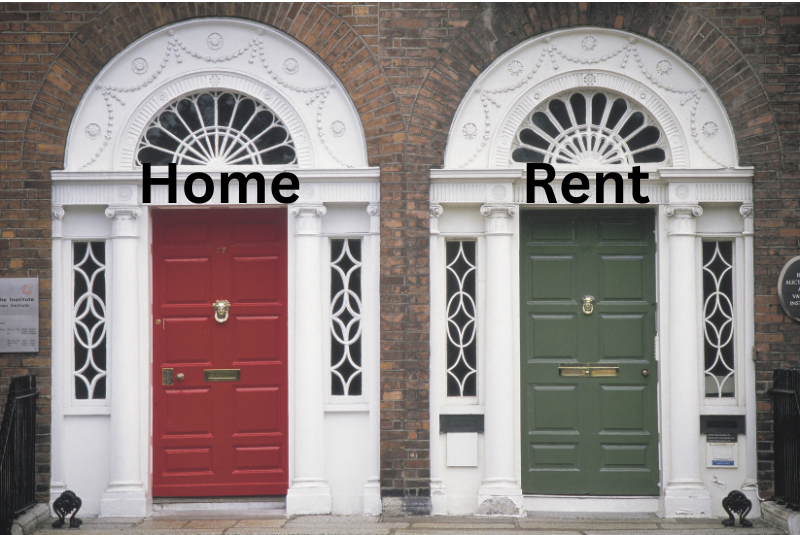Investors are now reflecting on the 2024 real estate market. Whether you're just starting out…
Real Estate Investing in 2025: A Compelling Outlook
Real estate investing has long been a cornerstone of investment portfolios, offering stability, appreciation, and cash flow opportunities.
While the last couple of years have been challenging for the real estate market, there are compelling reasons to consider it a prime investment class heading into 2025.
Below, we explore four key points that make the case for real estate as a long-term, resilient asset class.
1. Buy Low, Sell High: Real Estate is Cheaper Now
In recent years, real estate—particularly in the commercial and institutional sectors—has experienced a significant correction.
Commercial properties such as apartment buildings, industrial spaces, and offices have seen price drops of 20–40% in some cases, driven by rising interest rates and a cooling demand. Meanwhile, the stock market has continued to soar, with valuations reaching historically high levels.
This divergence presents an opportunity for value-oriented investors. While the stock market is priced for perfection, real estate offers relatively attractive pricing.
Historically, markets tend to revert to the mean over time, meaning undervalued assets like real estate have strong potential for appreciation as conditions stabilize. For those who buy now, the opportunity to “buy low and sell high” is well within reach.
Key Takeaways:
- Stock market valuations are historically high, while real estate prices are at multi-year lows.
- Corrections in real estate create opportunities for value investors to enter the market at a discount.
- Long-term investors can position themselves for appreciation as the market recovers.
2. Inverse Correlation: Real Estate as a Hedge Against Stocks
A fascinating development in 2023 was the breakdown in correlation between real estate and the stock market. Historically, these asset classes have moved together, but this year saw them diverge. While the stock market surged, real estate values continued to decline.
This inverse correlation creates a unique dynamic: real estate is now acting as a hedge against stock market volatility. Should the economy slow down or enter a recession, stocks are likely to decline, but real estate could benefit from falling interest rates, increased demand for rental housing, and its inherent resilience in economic downturns. For investors looking to balance their portfolios, real estate offers diversification and downside protection.
Key Takeaways:
- Real estate is less dependent on the economy’s performance, making it resilient in downturns.
- Falling interest rates during recessions often boost real estate values.
- Real estate is emerging as a hedge against stock market volatility.
3. Housing Supply is Poised for a Crash
The construction boom of 2021 and 2022 has led to an oversupply of new multifamily housing in certain markets. However, this surge in supply is temporary.
The rapid increase in interest rates has made new construction projects financially unviable, with multifamily housing starts falling by as much as 65%. This trend is expected to continue, leading to a sharp decline in new housing supply by 2026.
As the oversupply is absorbed and demand continues to grow, rents and valuations are likely to rise. This shift from oversupply to undersupply will create favorable conditions for real estate investors. Those who acquire assets now will be well-positioned to benefit from the tightening market and the resulting upward pressure on rents and property values.
Key Takeaways:
- Multifamily housing construction has plummeted due to high interest rates and rising costs.
- The housing market will shift from oversupply to undersupply by 2026.
- Limited new supply will drive rent growth and property appreciation.
4. Interest Rates Will Eventually Fall
Interest rates are a significant driver of real estate performance. While the rapid rise in rates has weighed heavily on the market, there are reasons to believe that rates will gradually come down.
Inflation, which drove rates higher in 2021 and 2022, has largely been brought under control. Additionally, the primary driver of inflation—rising rents—has already stabilized, although this stabilization has yet to be fully reflected in government statistics.
Lower interest rates would provide a dual benefit for real estate: reducing the cost of debt financing and increasing property valuations.
While the timing of rate cuts is uncertain, the long-term trajectory points to a more favorable interest rate environment, which will further strengthen the case for real estate investment.
Key Takeaways:
- Inflation has largely stabilized, reducing the need for further rate hikes.
- Falling interest rates will lower financing costs and boost real estate values.
- Investors who enter the market now can lock in discounted properties before rates decline.
Why Real Estate Remains a Compelling Investment
Real estate offers a combination of stability, income potential, and long-term appreciation that few other asset classes can match.
As we head into 2025, the market presents a unique opportunity for savvy investors to capitalize on undervalued properties, benefit from an emerging hedge against stock market volatility, and position themselves for future growth as supply tightens and interest rates decline.
Actionable Tips for Real Estate Investors:
- Focus on undervalued markets or asset classes, such as multifamily housing, that have seen significant price corrections.
- Diversify your portfolio with real estate to hedge against potential stock market volatility.
- Plan for the long term, recognizing that real estate cycles take time but reward patience and strategic thinking.
The case for real estate investing in 2025 is not just about the short-term gains but about the broader, long-term trends that will shape the market for years to come. For investors willing to look beyond today’s challenges, the future of real estate remains bright.
FAQ: The Case for Real Estate Investing in 2025
1. Why is now a good time to invest in real estate?
Real estate prices have declined significantly over the last two years, particularly in commercial and institutional sectors. This correction creates an opportunity to buy properties at discounted prices compared to their peak values. With the stock market at historically high valuations, real estate offers a more attractive entry point for value-oriented investors.
2. How does real estate act as a hedge against the stock market?
In 2023, real estate and the stock market became inversely correlated. While the stock market soared, real estate values continued to decline. If a recession occurs or the stock market faces a correction, real estate is likely to benefit from falling interest rates and increased demand for rental housing, providing a buffer for investors.
3. What’s happening with the supply of housing?
The recent construction boom led to an oversupply of multifamily housing in 2023 and 2024. However, this is temporary. With high interest rates making new construction financially unviable, housing starts have plummeted. By 2026, the market is expected to face an undersupply, which will drive up rents and property values.
4. How do interest rates impact real estate?
Higher interest rates increase the cost of financing real estate and can depress property values. However, as inflation stabilizes and rents decline, interest rates are expected to come down in the future. Lower rates will reduce borrowing costs and boost real estate values, making now a strategic time to invest.
5. What’s the difference between residential and commercial real estate in this context?
- Residential Real Estate: Single-family homes have remained resilient due to limited supply. Many homeowners are locked into low-interest fixed-rate mortgages and are not selling, keeping inventory tight.
- Commercial Real Estate: This sector has seen significant price declines due to rising interest rates and oversupply but offers opportunities for investors to acquire undervalued assets.
6. Isn’t real estate risky during economic uncertainty?
While no investment is without risk, real estate offers certain advantages during economic downturns:
- It provides steady cash flow from rental income.
- It’s less volatile than the stock market.
- Demand for housing remains relatively stable, even in challenging economic times.
7. What types of real estate investments are most attractive heading into 2025?
- Multifamily Housing: Despite recent oversupply, this asset class will benefit from undersupply in the coming years.
- Value-Add Properties: Properties that need upgrades or repositioning offer potential for strong returns as the market recovers.
- Rental Housing: With homeownership becoming less affordable due to high mortgage rates, demand for rental housing remains strong.
8. How will tariffs and construction costs affect real estate?
Tariffs and rising construction costs make new building projects more expensive, reducing future supply. This will make existing real estate more valuable as demand outpaces supply. Additionally, high construction costs discourage new projects, further tightening the market.
9. How can investors prepare for changes in the real estate market?
- Stay informed about local market conditions and trends.
- Focus on long-term investments rather than short-term speculation.
- Diversify your portfolio to include a mix of asset types, such as residential and commercial properties.
- Consider locking in properties at current prices before interest rates or valuations shift.
10. What are the key takeaways for real estate investing in 2025?
- Undervalued Market: Real estate prices are low compared to recent highs, creating a buying opportunity.
- Hedge Against Stocks: Real estate is inversely correlated with the stock market, offering diversification benefits.
- Future Supply Shortages: Housing supply is expected to decrease significantly, driving rents and property values higher.
- Potential Rate Declines: Falling interest rates will further boost real estate values and lower financing costs.
11. Is it better to invest now or wait?
While timing the market is difficult, the current undervaluation of real estate makes it an appealing time to invest for long-term growth. Waiting may lead to higher prices and increased competition as the market recovers.
12. What is the outlook for real estate in the next 3–5 years?
The real estate market is likely to shift from oversupply to undersupply, particularly in multifamily housing. Combined with the potential for declining interest rates, these trends suggest strong growth opportunities for real estate investors over the next few years.
If you have additional questions about real estate investing or want personalized insights, feel free to ask!




